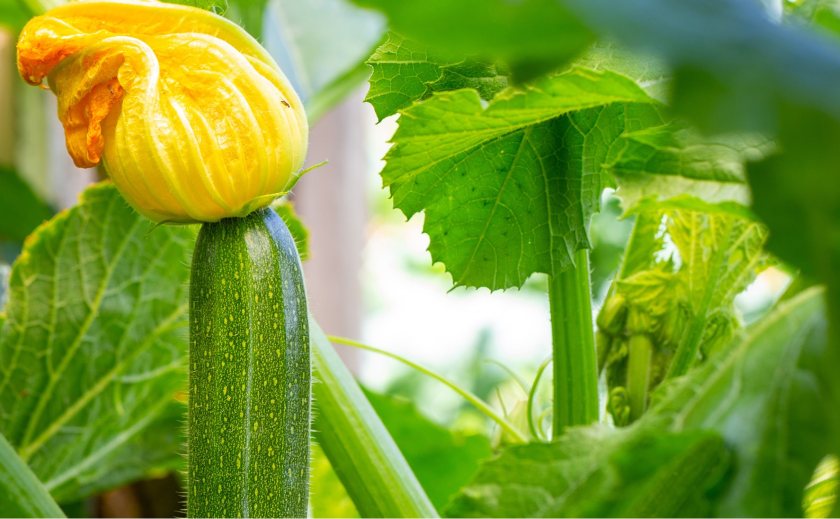
A new study has shown how silicon has almost doubled the weight of courgette fruit and helped strengthen the plant against powdery mildew.
Carried out by the University of Hertfordshire, the on-farm study looked to establish a link between silicon uptake and courgette plant performance.
The findings are encouraging for any grower looking to boost plant health and courgette weight whilst mitigating the effect of powdery mildew.
40ml of the silicon biostimulant Sirius at a concentration of 0.2% was used in the trial, and was applied to the soil on a weekly basis for eight weeks and compared to a control sample.
The control sample was given deionised water in the same volume as the treated plants received silicon to ensure both received the same amount of water.
The average weight of courgettes treated with Sirius was 180 grams which, compared to the control at 95 grams, shows that the addition of silicon almost doubled the weight of the fruit.
The study also charted the effect of powdery mildew on the plants. By leaf counting, it identified that, in almost all of the eight weeks, the silicon enhanced plants had fewer infected leaves.
“Silicon strengthens the root systems and leaf density of courgette plants, making the plant more resilient," said Dr Avice Hall, of the University of Hertfordshire.
"We have seen in other fruit crops, such as strawberries, that this can help reduce powdery mildew damage, which also helps the plant to produce larger, denser, heavier fruits."
The addition of silicon also helped the treated plants produce more courgettes and, by week four, the average number of the fruits was almost six, compared with the untreated plants that only produced four in this time.
“The study shows that silicon can enhance growth and alleviate plant stress," explained Dr Hall.
"It offers a more sustainable way to increase yields and should be considered by those seeking biological, rather than chemical, ways to improve plant health and productivity."
